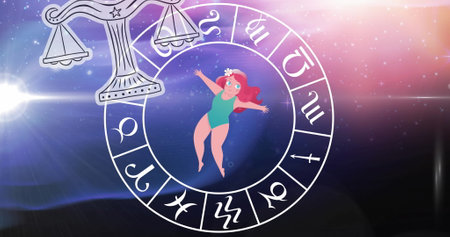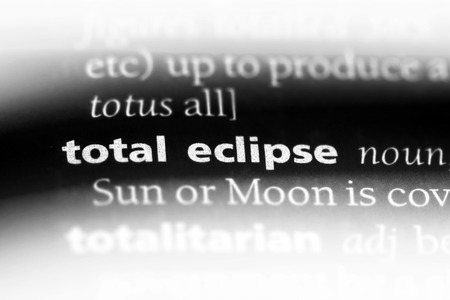Introduction: Celestial Events in British Culture
Throughout the centuries, celestial phenomena such as eclipses and planetary retrogrades have captivated the British imagination, weaving themselves into the very fabric of national folklore and everyday conversations. From the awe-inspiring solar eclipses that once sent villagers flocking to churchyards, to the whispered warnings of Mercury in retrograde causing travel delays or communication mishaps, these cosmic events hold a unique place in both historical records and contemporary British culture. The recurring presence of eclipses and retrogrades has not only influenced how people interpret omens and fate but has also shaped artistic expressions, seasonal festivities, and even political decisions throughout the UKs history. Today, with social media amplifying astrological discussions and public interest in sky-watching on the rise, the significance of these celestial occurrences continues to evolve, reflecting a blend of scientific curiosity and enduring mystical fascination within British society.
2. Historical Perspectives: Eclipses and Retrogrades in British Folklore
Throughout British history, celestial events such as eclipses and planetary retrogrades have fascinated and unsettled local communities. Before the rise of modern astronomy, these occurrences were often shrouded in mystery, leading to a variety of myths, superstitions, and cultural traditions that still echo in British society today. Eclipses, with their dramatic darkening of the sky, were frequently seen as omens—portents of change, danger, or even doom. Retrogrades, on the other hand, were less visually dramatic but equally significant; the apparent backward motion of planets like Mercury was often interpreted as a time of confusion or reversal.
Folk Interpretations and Symbolism
In rural Britain, eclipses were sometimes believed to herald significant societal changes or upheavals. Many communities would gather together during an eclipse, both out of curiosity and fear. Superstitions abounded—some believed that crops sown during an eclipse would fail, while others saw it as an auspicious moment for making important decisions or casting spells. Retrogrades were similarly woven into folk beliefs; Mercury retrograde periods were thought to bring miscommunication and mishaps, prompting people to delay travel or major commitments.
Common Myths Associated with Eclipses and Retrogrades
| Celestial Event | Traditional Belief | Typical Practice |
|---|---|---|
| Solar Eclipse | Omen of political change or natural disaster | Avoid making major decisions; stay indoors |
| Lunar Eclipse | Time when boundaries between worlds thin | Hold protective rituals; share food with neighbours |
| Mercury Retrograde | Mischief with communication and travel | Delay new ventures; double-check plans |
The Role in Shaping Local Traditions
The influence of these beliefs extended into everyday life and seasonal customs. For instance, some agricultural communities avoided planting during particular planetary alignments or eclipses, hoping to safeguard their harvests. In certain regions, special gatherings were organised to witness these rare events together—a blend of awe and communal support in the face of the unknown. These traditions reveal how deeply celestial cycles have been woven into the fabric of British folklore and collective experience.

3. Astrology Today: Navigating Modern British Life
In the bustle of contemporary British society, astrology has found a renewed and relatable voice, especially in how people interpret celestial events such as eclipses and retrogrades. From the daily commute on the Tube to chats over tea in cosy kitchens, astrological phenomena are woven into conversations with surprising frequency. While some may approach horoscopes with a healthy dose of scepticism or humour—often referring to Mercury retrograde when technology goes awry—others turn to timely advice columns for guidance during uncertain moments. The accessibility of astrology through newspapers, online platforms, and social media has made it an everyday companion for many Britons seeking comfort, reassurance, or simply a fresh perspective.
Astrology in the Media
The enduring popularity of horoscope columns in UK publications like The Times or Metro reflects a collective curiosity about what the stars might hold. Advice columnists frequently blend astrological insight with practical counsel, responding to readers’ dilemmas by offering both grounded advice and gentle cosmic nudges. Eclipses and retrogrades often headline these pieces, sparking discussions about timing major decisions or embracing moments of reflection.
Social Contexts and Community
Astrology also serves as a social glue, creating common ground in workplaces, friendship groups, and even online forums. During notable celestial events—such as a dramatic lunar eclipse—its not unusual for Britons to share observations or witty remarks on social media, turning private wonderings into shared experiences. These moments foster a sense of connection amidst the pressures of modern life.
Personal Empowerment Through Celestial Cycles
For many individuals across the UK, eclipses and retrogrades provide opportunities for introspection and personal growth. Whether seeking clarity during Mercury’s backward dance or setting intentions under an eclipse, Britons increasingly view these astrological events as invitations to pause, reflect, and realign their paths. In this way, astrology offers more than prediction—it becomes a gentle tool for navigating lifes uncertainties within a distinctly British context.
4. Community and Connection: Shared Experiences of Celestial Events
In British society, celestial events such as eclipses and planetary retrogrades serve as more than just astronomical phenomena—they become powerful moments for collective experience and reflection. Across the UK, these rare occurrences inspire a sense of togetherness, drawing people from diverse backgrounds to share in the wonder and curiosity they evoke.
When an eclipse is predicted, communities often organise gatherings at local parks, observatories, or schools. It is not uncommon to see neighbours sharing eclipse glasses or families setting up telescopes in their gardens. These communal experiences foster public intrigue and spark conversations that might not happen otherwise, bridging generational gaps and encouraging intergenerational learning.
The shared anticipation leading up to an eclipse or a notable retrograde period often finds its way into workplaces, classrooms, and even local pubs. People discuss their interpretations, recall past experiences, and sometimes even plan themed events or viewings. The media plays a pivotal role by providing coverage that enhances public awareness and encourages safe viewing practices.
| Celestial Event | Typical UK Activities | Social Impact |
|---|---|---|
| Lunar Eclipse | Nighttime community viewings, astronomy club meetings | Fosters appreciation for science and tradition of storytelling |
| Solar Eclipse | School workshops, special broadcasts, outdoor gatherings | Creates national moments of awe and unity |
| Mercury Retrograde | Online discussions, advice columns in newspapers | Encourages collective reflection on communication and plans |
This culture of shared celestial observation provides opportunities for both personal insight and social bonding. In times when digital connectivity can sometimes increase feelings of isolation, these nationwide astronomical events remind people across Britain of their place within a larger community—and within the cosmos itself. By making space for collective wonder, the UK nurtures a sense of belonging that transcends individual differences, strengthening the social fabric throughout the year.
5. Practical Guidance: Making the Most of Eclipses and Retrogrades
Embracing Self-Reflection
Eclipses and retrogrades can often bring about feelings of uncertainty or emotional turbulence. In the context of British society, where resilience and a ‘keep calm and carry on’ mindset are valued, these celestial events provide a unique opportunity for self-reflection. Consider setting aside quiet moments for journaling or mindful walks in nature—be it a stroll through your local park or along the coast. These reflective practices can help you process any heightened emotions, clarify your thoughts, and reconnect with your personal values.
Intentional Decision-Making
During periods of retrograde, especially Mercury retrograde, communication mishaps and misunderstandings are more common. It is wise to double-check important emails, review travel plans thoroughly, and avoid making rushed decisions. If possible, use these times to revisit unresolved matters rather than initiating major changes. This patient approach not only aligns with classic British sensibilities but also encourages thoughtful decision-making rooted in clarity rather than impulse.
Nurturing Emotional Resilience
The unpredictable energy of eclipses may amplify stress or anxiety. Support yourself by leaning into the strong community networks that are often found across Britain—whether that’s reaching out to friends at the local pub, participating in community events, or seeking professional support if needed. Practising grounding techniques such as deep breathing or mindfulness meditation can also bolster your emotional resilience, helping you navigate these cosmic shifts with greater ease.
Building Connection and Understanding
Remember, everyone experiences these periods differently. Foster empathy by listening to others’ perspectives without judgment. Sharing experiences within trusted circles can deepen your sense of belonging and remind you that you’re not alone in facing challenges. This collective spirit reflects the enduring strength found throughout British communities.
A Gentle Reminder
Eclipses and retrogrades need not be sources of fear; instead, they offer valuable moments for pause and inner growth. By approaching these times with curiosity and compassion for yourself and others, you can transform potential disruption into meaningful progress—personally and collectively within British society.
6. Conclusion: Embracing Celestial Cycles in British Society
Throughout the calendar year, eclipses and retrogrades serve as powerful reminders of our connection to the cosmos and our place within a constantly evolving universe. For British society, these celestial events hold both historic resonance and contemporary relevance, weaving together folklore, community experience, and personal reflection. By acknowledging the enduring significance of eclipses and retrogrades, we honour a tradition of mindful observation that has shaped our collective consciousness for generations.
Staying Grounded Amidst Cosmic Change
While it can be tempting to view these astronomical events with a sense of apprehension or heightened expectation, a grounded approach encourages us to use them as opportunities for self-awareness and growth. Instead of allowing fears or misconceptions to take hold, we can reflect on how these cycles mirror the rhythms of daily life—times of illumination, introspection, challenge, and renewal.
Nurturing Community and Personal Wellbeing
Incorporating an understanding of celestial cycles into our lives need not be dramatic; rather, it is about cultivating mindfulness and resilience. Whether through quiet contemplation during an eclipse or setting intentions during a retrograde period, British society can benefit from using these moments as prompts for conversation, support, and collective grounding. They invite us to pause, reassess priorities, and reconnect with ourselves and each other.
Looking Forward with Intention
As we move through the year’s unfolding chapters, let us embrace the ancient wisdom reflected in the sky above. By approaching eclipses and retrogrades with curiosity rather than anxiety, we foster a culture that values thoughtful engagement with both tradition and change. Ultimately, these cosmic events offer not only insight but also inspiration—a chance to realign with what truly matters in our shared journey across the seasons.


